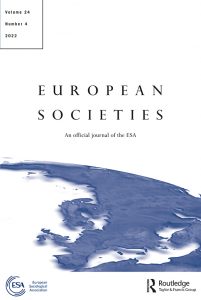No evidence of direct peer influence in upper-secondary track choice — evidence from Hungary
ABSTRACT
This paper investigates direct peer influence in upper-secondary track choice in the stratified and selective Hungarian educational system and makes two contributions to the literature. First, it tests both peer-contrasting and peer-conforming influences by considering peers’ GPA and endogenous educational choices. Second, the paper investigates mechanisms behind peer-conforming educational choices (such as peers’ normative pressure and information potential), with a focus on two structurally different peer relationships: self-selected friends and randomly assigned deskmates. The study uses a unique dataset that merges administrative data with randomized field experiment data. The results show no evidence of peer influence, after accounting for unobserved classroom homogeneity. Within the classroom, peers’ ability did not decrease, and peers’ ambitious endogenous educational choices did not increase students’ own choice of the academic upper-secondary track. Concerning the mechanisms of peer-conforming educational choices, the results reveal that peers’ informational potential (but not their normative pressure) might be the mechanism that drives students to conform to peers’ choices. Thus, the absence of peer influence may contribute to the reproduction of pre-existing social inequalities in upper-secondary track choices since peer influence cannot derail students’ socially determined educational choices in Hungary..
KEYWORDS: Upper-secondary track choice, peer influence, application behavior, social contrast and conformity, deskmates, educational choice



